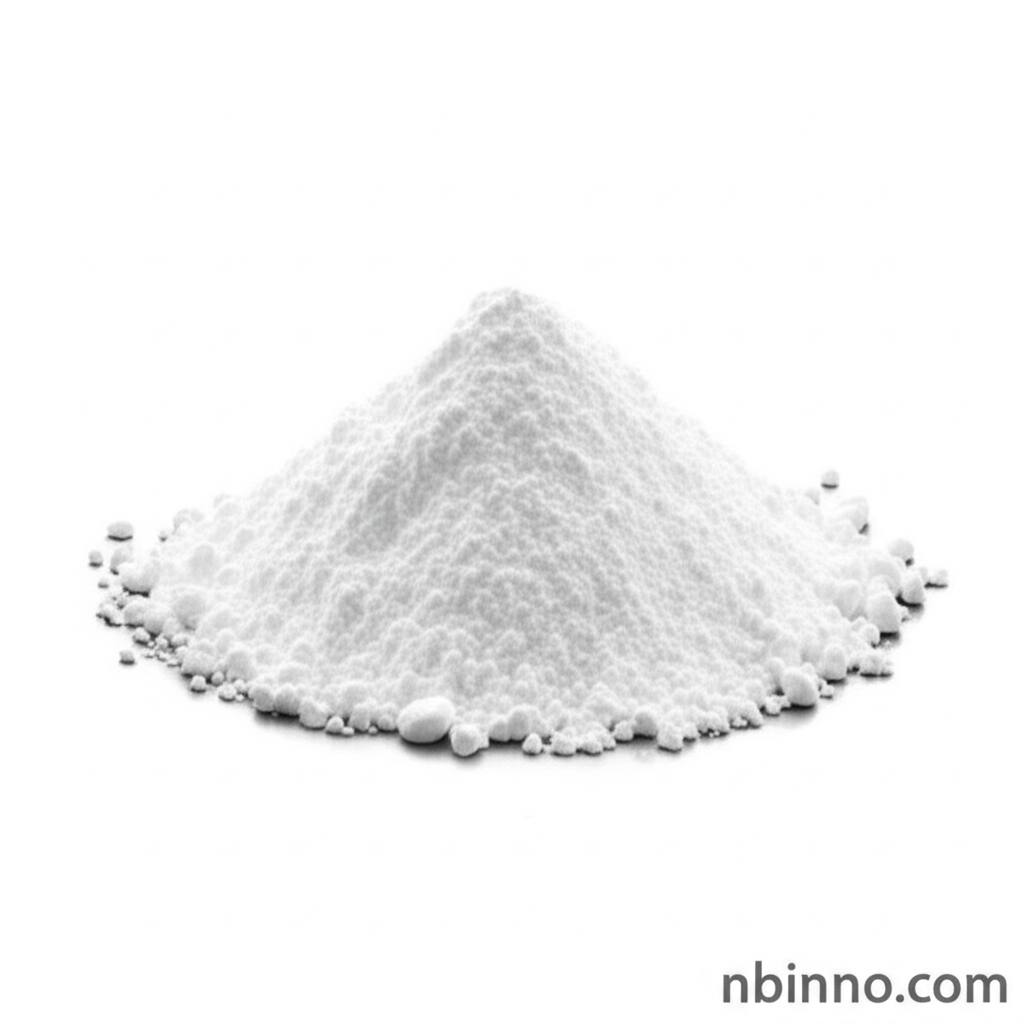Zinc Chloride: Properties, Industrial Applications, and Textile Dyeing Mordant
Discover the multifaceted applications of Zinc Chloride, from industrial processes to textile enhancement.
Get a Quote & SampleProduct Core Value

Zinc Chloride
Zinc Chloride (ZnCl2) is a versatile inorganic compound known for its hygroscopic nature and wide-ranging industrial utility. Its ability to dissolve metal oxides and cellulose makes it invaluable in various sectors.
- Explore the critical role of zinc chloride as a mordant in textile dyeing, ensuring vibrant and lasting colors on fabrics.
- Understand the industrial applications of zinc chloride, including its function as a catalyst and dehydrating agent in organic synthesis.
- Learn how zinc chloride serves as a metallurgical flux, crucial for cleaning metal surfaces and promoting strong solder joints.
- Discover the use of zinc chloride in batteries as an electrolyte, contributing to their performance and longevity.
Advantages Offered by the Product
Versatile Chemical Properties
Zinc chloride's unique chemical properties, including its Lewis acidity and dehydrating capabilities, enable its use in a broad spectrum of chemical processes, from organic synthesis to industrial catalysts.
Enhanced Textile Processing
As a key mordant in textile dyeing and printing, zinc chloride significantly improves dye fixation and colorfastness, contributing to the overall quality and durability of dyed textiles.
Effective Metal Treatment
In metallurgy, zinc chloride functions as an effective flux and etchant, essential for surface preparation in soldering, brazing, and galvanizing processes, ensuring reliable metal bonding.
Key Applications
Textile Printing and Dyeing
Zinc chloride is widely employed as a mordant in textile dyeing and printing, enhancing color depth and fastness, and is also used for fabric sizing and weighting.
Metallurgical Fluxes
In the metallurgical industry, zinc chloride serves as a flux for soldering and galvanizing, effectively removing metal oxides from surfaces to ensure strong adhesion.
Organic Synthesis Catalyst
As a powerful Lewis acid, zinc chloride acts as a catalyst and dehydrating agent in various organic reactions, facilitating the synthesis of fine chemicals and pharmaceuticals.
Battery Electrolytes
Zinc chloride finds application as an electrolyte in certain types of dry cell batteries, contributing to their electrical conductivity and performance.
